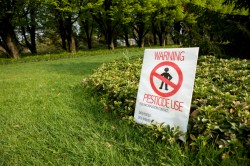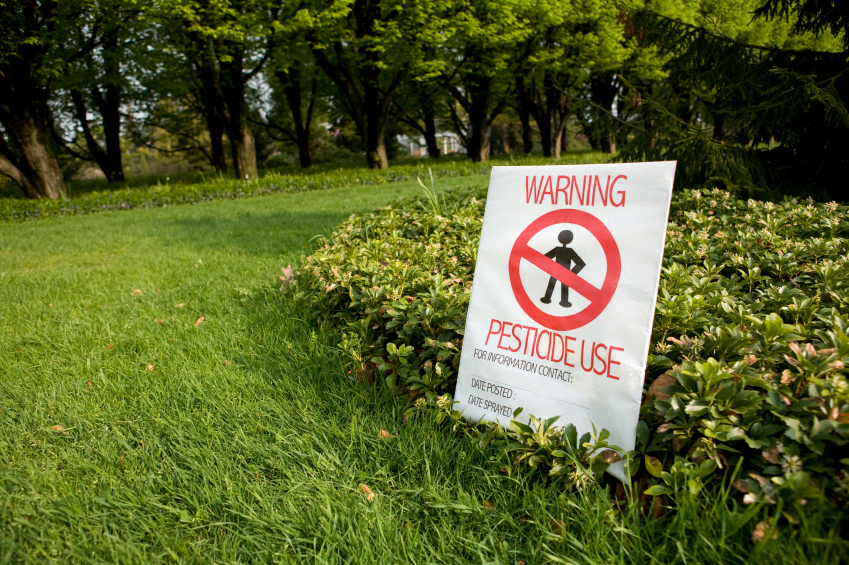Send your question to Umbra!
Q. Dear Umbra,
I live in a pretty nice trailer park with lots of room to grow beautiful organic food. My neighbors spray pesticides at the fence line, and the pesticide drift has poisoned some of my vegetables and the soil. I stopped talking to them the second time it happened. The park manager has told them not to do it. But they continue. How can I stop them from trying to poison me? I talked with the mayor and she didn’t know what I should do, as there are no city laws addressing the problem. And what do I do with the soil and the plants that have been poisoned?
Patricia
Lafayette, Colo.
 A. Dearest Patricia,
A. Dearest Patricia,
I am going to let you in on a little secret. There are times when I dole out advice from up here on the Advice Doling Console and I think to myself, “Hmm, easier said than done.” I know this is going to be one of those times, because it is hard to find a confident-yet-not-overly-confrontational way to talk to people about their habits, especially people with whom you share a fence line. But let’s take a look at how you can protect yourself and your veggies.
Like so many Americans, your neighbors have been led to believe they need poisons to keep their yard pretty and pest-free. According to the Environmental Protection Agency (EPA), we use 67 million tons of chemicals on our lawns each year, dropping a cool $700 million for the privilege of contaminating our surroundings and ourselves. Homeowners use 10 times the amount of pesticides per acre that farmers do. And as you’ve discovered, toxic particles can drift several feet, or even many miles, depending on the method of application and other factors.
As a homeowner, you have few legal rights against pesticide drift, says Paul Towers, a spokesperson from the Pesticide Action Network (PAN): “Unfortunately, the regulatory system favors pesticide applicators and manufacturers and places the burden of proof on victims of pesticide poisoning.” So what are we to do? Here are a few ideas.
- Talk to your neighbor. It seems you have commenced the silent treatment, and that’s understandable. But you will get further, I think, if you return to civility, difficult as it may be. For one thing, you want to find out what they’re spraying, so you can assess the health risks (use PAN’s handy pesticide database). For another, you don’t want this situation to escalate to the point where they toy with you by spraying more aggressively or causing other harm. And who knows, you might even make them aware of the surprising risks of these common household products. I recommend a gentle approach, as I did with another letter-writer’s non-recycling neighbors: “Hey, I know this seems hard to believe, but I think the stuff you’re using in your yard actually turned my spinach gray. I’m just wondering what you’re using, and whether you’ve ever seen it do anything weird in your yard?” If they seem receptive, or say yes, they did actually notice their petunias wilt that one time, you could share some information about the hazards of lawn chemicals and some of the non-toxic alternatives. I’m a big believer in factiness. Cookies help, too.
- Put up barriers. Can you block your side of the fence with sheet metal, concrete blocks, or some other material? This won’t solve the problem entirely, but it could help. You could also try sheltering your next crop by building a small greenhouse; Towers also says upright, anchored plastic sheeting can protect vegetation. Also, this might seem obvious, but plant your garden as far from the fence as possible, and consider creating a buffer zone along the fence of mulch or gravel. If you do get back on speaking terms, ask your neighbors to consider spraying on non-windy days to minimize drift.
- Contact the authorities. You have already talked with your park manager and your mayor. I say keep going. Towers recommends that anyone in this situation contact the state agency that regulates pesticide use; in your case, it’s the Colorado Department of Agriculture’s Division of Plant Industry. “At the very least, the complaint will be logged,” he says. “The agency might choose to investigate as well.” Those in other areas can check EPA’s National Pesticide Information Center for a state-by-state list of resources.
Towers says legal action can be a possibility if the product is being used in a way that is inconsistent with the label, but as we know, that route is costly, time-consuming, and counterproductive to good relations. With any luck, you won’t need to go that route.
As to disposing of the affected soil and plants, the answer depends on what’s been sprayed. Some pesticides are quick to break down, while others linger. Once you find that out, ask your local waste authority, nearest cooperative extension office, or the agriculture department what course of action they recommend.
Good luck, and let me know how it goes.
Mr. Rogers-ly,
Umbra




